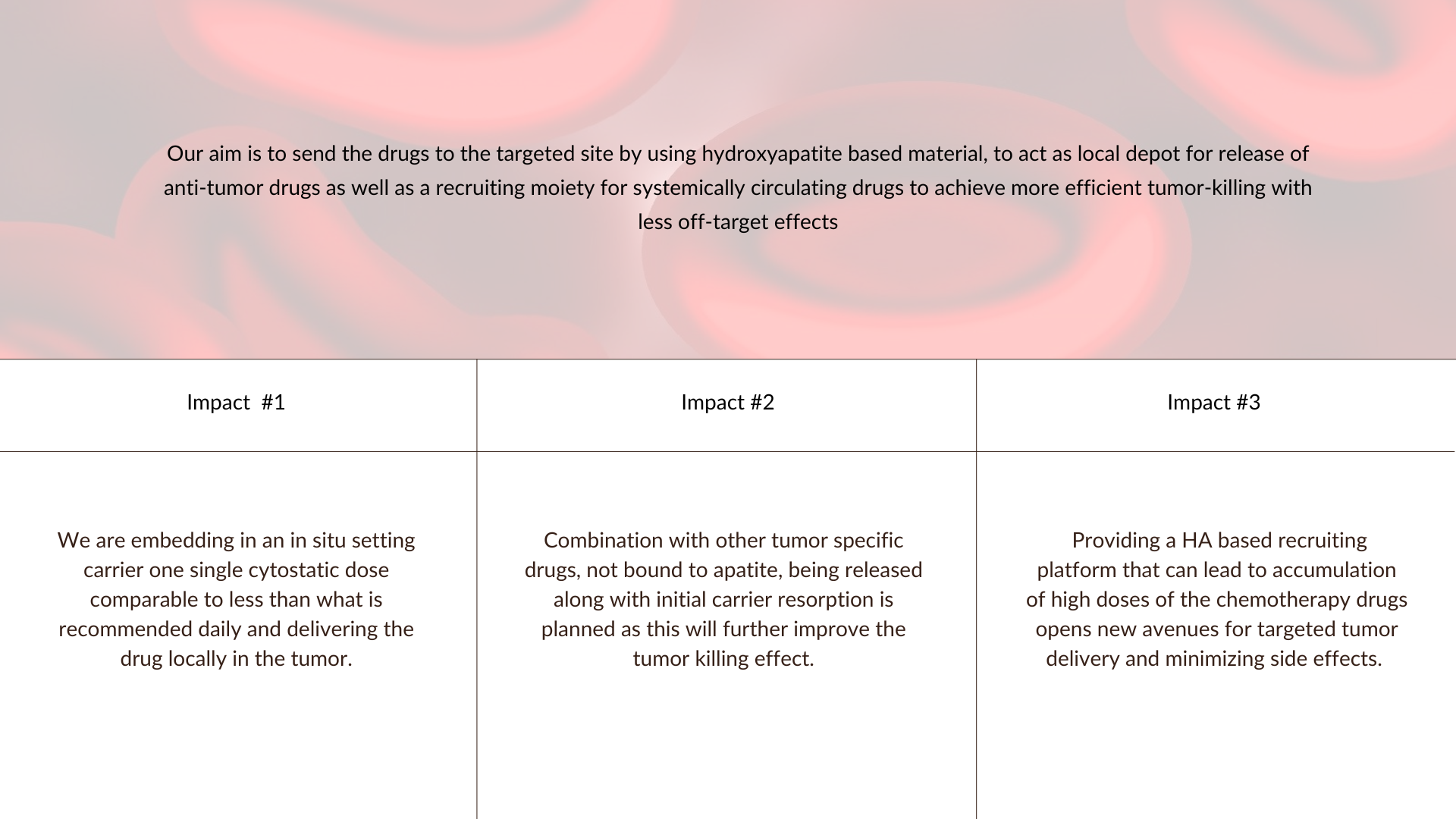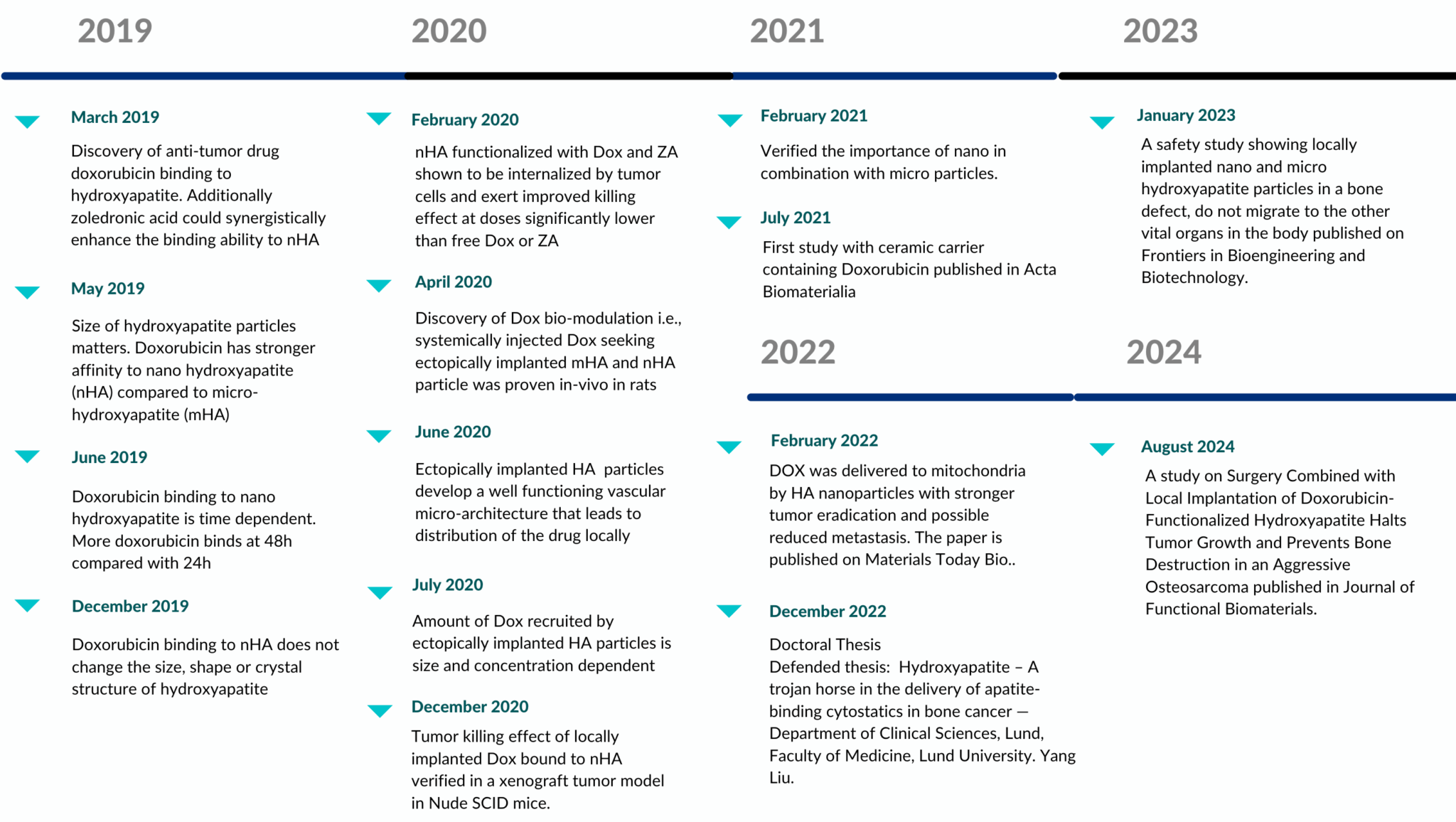Our Science
Targeting Bone Disease by a Trojan Horse
A novel system for targeted delivery of anti-tumor drugs using bone minerals as a recruiting platform. We incorporate approved tumour killing molecules with high accretion to the bone mineral i.e., Hydroxyapatite (HA). In addition a systemic loading of a specific drug will seek, bind and exert a local biological effect. This increase efficacy of targeted drug delivery without causing side-effects in other tissues.
Biomaterials based local or targeted delivery of chemotherapeutic agents is one of the important research areas of our lab. Recent clinical studies have shown that intensifying chemotherapy by combining several anti-cancer agents together does not improve the event-free survival in solid tumors but causes more side effects.
Ever since the use of aggressive chemotherapy drugs was introduced 30 years ago, the event free survival in patients has significantly improved. However, an increasing drug resistant pattern in sarcoma patients has been seen in the past 5-10 years. Sarcomas has a microenvironment with a high interstitial fluid pressure and neo-angiogenesis blocking the drugs reaching the tumor tissue, which leads to both inefficient tumor killing and drug resistance. Systemically circulating anti-cancer agents tend to accumulate in the liver, lung and heart causing severe side effects.
Unfortunately, very little improvement in overall survival for osteosarcoma patients has been seen in the last decades.
Thus, using biomaterials to deliver already approved repurposed drugs more efficiently might be the alternative for a rapid translation from the bench to bedside. Furthermore, providing a HA based recruiting platform leading to accumulation of high doses of the chemotherapy drugs opens up new avenues of targeted tumor delivery and minimizing side effects.
Our previous data have shown local controlled and sustained delivery (up to 28 days) of doxorubicin (DOX) using an HA based biomaterial has a better tumor-killing effect than systemic administration. Further, various anti-cancer agents combing with DOX are being explored in the lab now to achieve a spatial release to cover a longer treatment period. Later locally implanted slow resorbing hydroxyapatite could be used as a Trojan horse within the tumor to reload circulating apatite-binding drugs like DOX in the long follow-up to prevent recurrence and complement present systemic treatment.

Key Developments

